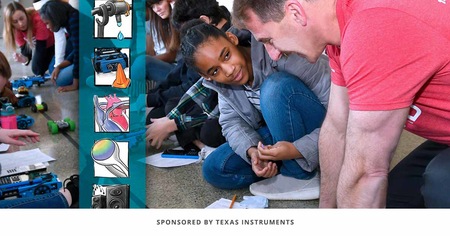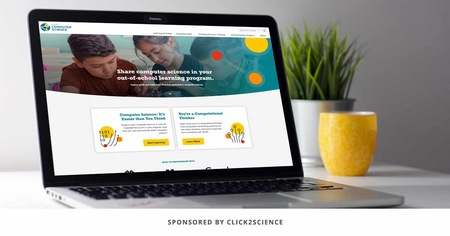Leading organizations that support PD and program quality improvement, PEAR (Partnerships in Education and Resilience) Institute from Harvard, NAA, the Maine Math and Science Alliance (MMSA), and Click2SciencePD (C2S) have joined together as a collaborative Advisory Group to develop a national research-based OST STEM PD and credentialing system.
The system focuses on moving the needle on program quality and STEM skills in youth by building and recognizing staff STEM facilitation skills through professional development and credentialing.
The collaborative efforts the Advisory Group and others within the afterschool field will fulfill the goal of facilitators delivering the high-quality STEM programs that produce positive youth outcomes through a national research-based PD and credentialing system designed:
- For participation by a broad audience of afterschool professionals with various levels of knowledge and competency and from a variety of program types.
- To afford opportunities for multiple professional development providers to create training supporting development of these knowledge and competencies.
The current Advisory Group collaboration brings ACRES, Click2SciencePD Skills and the Dimensions of Success (DoS) Quality Assessment together into a research-based system with an alignment that includes:
- Well-defined staff facilitation competencies that support STEM program quality.
- Micro-Credential Digital Badges recognizing individual key competencies.
- Credential Awards based on demonstration competence.
The Advisory Group finalized the PD/DOS Alignment and the following STEM credentialing system award framework and pricing model proposal includes their recommended 10 micro-credential badges:
Foundational Digital Credential
1. Creating Informal STEM Learning Environments
Core Digital Credentials
2. Promoting Purposeful STEM Activities
3. Engaging Youth in Active STEM Learning
4. Ensuring Equitable Participation in STEM
5. Establishing STEM Identity and Relevance
6. Creating a Positive STEM Learning Atmosphere
Advanced Knowledge and Competency Digital Credentials
7. Ensuring STEM Content Learning
8. Encouraging STEM Practices
9. Facilitating STEM Reflection and Connections
10. Engaging Youth in Active STEM Learning
The system will utilize the Digital Promise Micro-Credential Marketplace where applicants submit the following points of evidence for each micro-credential desired, along with a $25 application fee:
- Competence Demonstration Video scored with Dimensions of Success (DoS) or documentation that shows observation results from certified DoS observer.
- Facilitator Reflection.
A facilitator earning all 10 micro-credentials is eligible for a Comprehensive STEM Facilitation Digital Credential.
In the final pilot year, which ends in December 2018, the system will offer three micro-credentials and collect data for evaluation purposes. PEAR will lead the evaluation, which will use specific data points to answer two primary research questions:
1. What can we learn about facilitators applying for/receiving badges?
2. Why should front line staff engage in this system and badging process?
The evaluation will also take an initial cursory look and the pilot data from the different assessments to make sure there are not significant discrepancies. Funding dependent future study possibility:
- Is this badging system valid/working (e.g. are the different assessments measuring what they say they are measuring?)
The evaluation results will be used to inform the field and the next iteration of the system, which is expected to be available field-wide in 2019.
If you or your organization are interested in participating either as a PD provider or applying for micro-credentials, please send questions to www.naaweb.org to learn more.
Courtesy of NAA.




